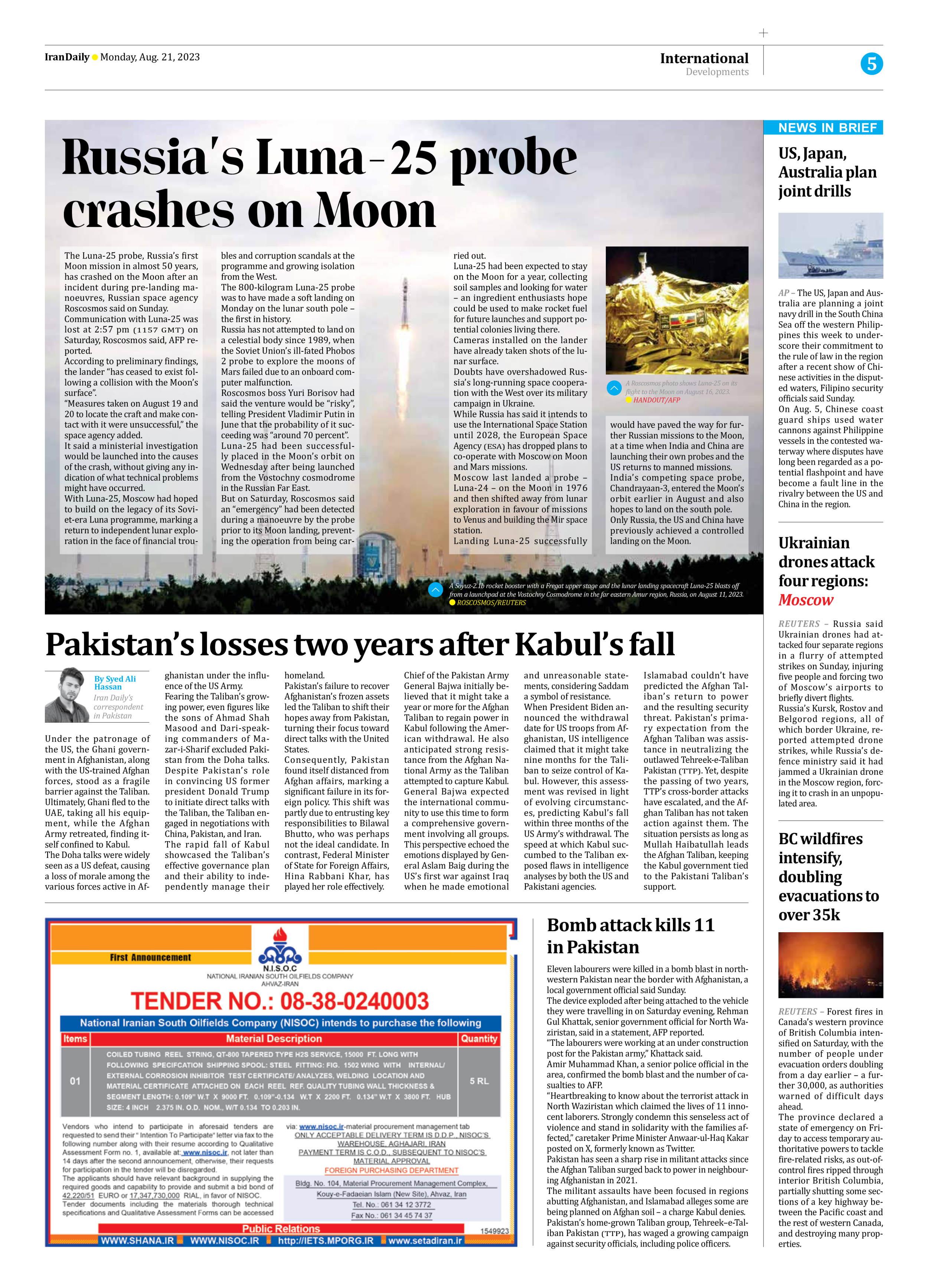
Pakistan’s losses two years after Kabul’s fall
By Syed Ali Hassan
Iran Daily’s correspondent in Pakistan
Under the patronage of the US, the Ghani government in Afghanistan, along with the US-trained Afghan forces, stood as a fragile barrier against the Taliban. Ultimately, Ghani fled to the UAE, taking all his equipment, while the Afghan Army retreated, finding itself confined to Kabul.
The Doha talks were widely seen as a US defeat, causing a loss of morale among the various forces active in Afghanistan under the influence of the US Army.
Fearing the Taliban’s growing power, even figures like the sons of Ahmad Shah Masood and Dari-speaking commanders of Mazar-i-Sharif excluded Pakistan from the Doha talks. Despite Pakistan’s role in convincing US former president Donald Trump to initiate direct talks with the Taliban, the Taliban engaged in negotiations with China, Pakistan, and Iran.
The rapid fall of Kabul showcased the Taliban’s effective governance plan and their ability to independently manage their homeland.
Pakistan’s failure to recover Afghanistan’s frozen assets led the Taliban to shift their hopes away from Pakistan, turning their focus toward direct talks with the United States.
Consequently, Pakistan found itself distanced from Afghan affairs, marking a significant failure in its foreign policy. This shift was partly due to entrusting key responsibilities to Bilawal Bhutto, who was perhaps not the ideal candidate. In contrast, Federal Minister of State for Foreign Affairs, Hina Rabbani Khar, has played her role effectively.
Chief of the Pakistan Army General Bajwa initially believed that it might take a year or more for the Afghan Taliban to regain power in Kabul following the American withdrawal. He also anticipated strong resistance from the Afghan National Army as the Taliban attempted to capture Kabul.
General Bajwa expected the international community to use this time to form a comprehensive government involving all groups. This perspective echoed the emotions displayed by General Aslam Baig during the US’s first war against Iraq when he made emotional and unreasonable statements, considering Saddam a symbol of resistance.
When President Biden announced the withdrawal date for US troops from Afghanistan, US intelligence claimed that it might take nine months for the Taliban to seize control of Kabul. However, this assessment was revised in light of evolving circumstances, predicting Kabul’s fall within three months of the US Army’s withdrawal. The speed at which Kabul succumbed to the Taliban exposed flaws in intelligence analyses by both the US and Pakistani agencies.
Islamabad couldn’t have predicted the Afghan Taliban’s return to power and the resulting security threat. Pakistan’s primary expectation from the Afghan Taliban was assistance in neutralizing the outlawed Tehreek-e-Taliban Pakistan (TTP). Yet, despite the passing of two years, TTP’s cross-border attacks have escalated, and the Afghan Taliban has not taken action against them. The situation persists as long as Mullah Haibatullah leads the Afghan Taliban, keeping the Kabul government tied to the Pakistani Taliban’s support.







